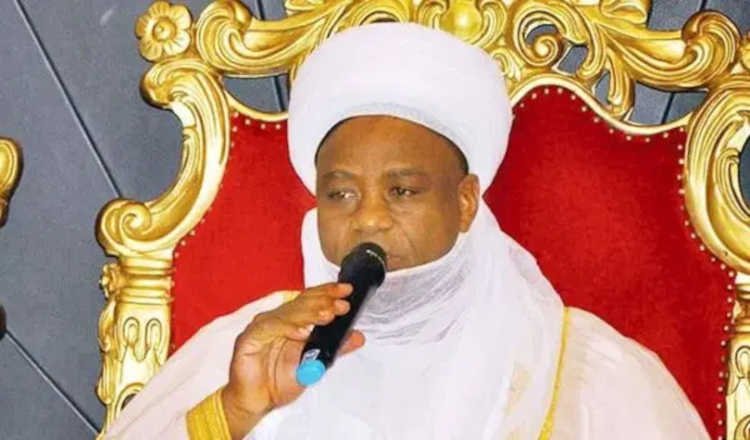The Sultan of Sokoto, Sa’ad Abubakar II, advising Nigerians against criticising their leaders does not align with the principles of democracy.
Development Diaries reports that the Sultan, during a Regional Conference on Climate Change-Induced Conflicts in Northern Nigeria, urged citizens to refrain from criticising their leaders and instead trust God to ‘handle them’.
While his call for faith and prayer in challenging times is commendable, advocating for the silence of citizens in the face of governance issues sends a message that diminishes civic engagement and accountability.
Citizens have the right and responsibility to hold their leaders accountable as constructive criticism and active participation in governance are essential components of a healthy democracy and crucial for societal progress.
Also, traditional and religious leaders hold influential roles within communities and should use their positions to empower citizens, not discourage them from seeking accountability.
The Sultan’s advice risks promoting passivity and may be interpreted as endorsing an unchecked authority. Adhering to this advice would only lead to a situation where leadership inadequacies and corruption remain unchallenged.
The north, like the rest of Nigeria, grapples with serious challenges, including climate change, poverty, and insecurity, that demand solutions rooted in accountability and innovation.
According to the 2022 National Multidimensional Poverty Index by the National Bureau of Statistics (NBS), 63 percent of persons living in Nigeria are multidimensionally poor and 65 percent of this number (86 million people) live in the north.
The only way communities can achieve sustainable development and a fair society is when citizens are encouraged to take an active role in shaping their futures and demanding transparency and accountability from their leaders.
The emphasis should rather be on encouraging a culture of active citizenship where people feel empowered to engage in democratic processes, voice their concerns, and advocate for reforms that lead to better governance.
Traditional leaders in Nigeria need to recognise that their influence can either uplift a nation or contribute to its stagnation.
True leadership requires transparency and a willingness to be scrutinised, hence shielding leaders from criticism only breeds complacency and weakens the social contract between the governed and those in authority.
Development Diaries calls on the Sultan and other traditional leaders to reinforce the importance of civic responsibility, reminding both leaders and citizens that governance is a shared duty grounded in mutual respect and active participation.
The path to good governance lies in open dialogue, civic participation, and responsible leadership, not silence. While prayer and faith are vital, they must be complemented by actions that inspire positive change.





